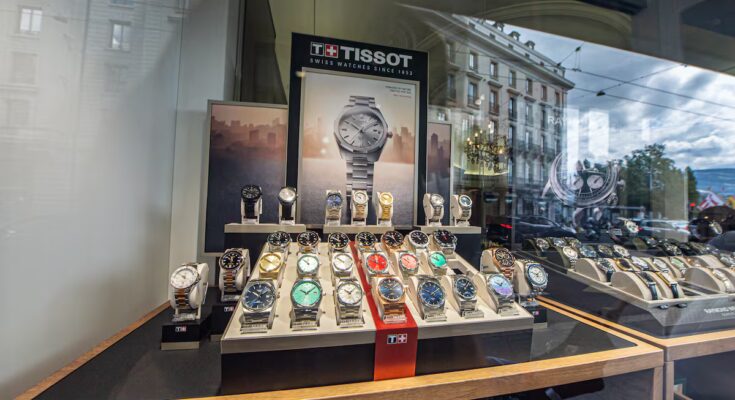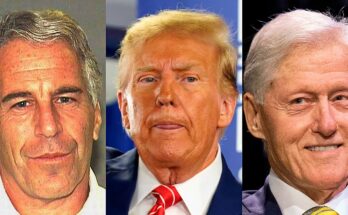The United States and Switzerland have reached an agreement to reduce the 39% tariffs imposed by US President Donald Trump last summer, US Trade Representative Jamieson Greer announced on Friday. “Essentially, we reached a (trade) agreement with Switzerland,” Greer told CNBC. The details of the agreement are still unknown. “They will move a lot of their manufacturing to the United States: pharmaceuticals, gold smelting, rail equipment,” Greer added.
After months of negotiations, in which the government of the small but rich European country tried to seduce the Republican by improving its offer, the agreement will leave tariffs at 15%, the same percentage supported by the European Union or Japan.
Trump signaled a change of direction late Monday when reporters in the Oval Office asked him about the negotiations. The American president observed: “We have hit Switzerland hard, (but) we want it to continue to succeed.” He also said he is “essentially a good ally.”
With the United States as their main trading partner, the Swiss sell on that market mainly pharmaceutical products (negotiations with these producers have taken a second path), chemical products, precision metals and gold – which is refined in Switzerland -, watches, machinery and precision instruments, the latter sectors being among the most affected by trade rates. The export of cheese or chocolate also suffered from the impact of the tariffs.
According to Swiss and American media, to reach an agreement, the Swiss government promised, among other things, to buy more weapons from the United States, to provide American energy companies access to its market and to relocate pharmaceutical factories to the United States. Big pharmaceutical companies have already announced millionaire investments on American soil and their willingness to reduce drug prices, as requested by Trump.
Giants like Roche or Novartis already produce or intend to do so in the United States. A step that pharmaceutical companies around the world are taking under pressure from Trump. A dozen pharmaceutical companies have pledged to invest more than $350 billion by the end of the decade in the United States.
Negotiations were also started to transfer activities related to gold processing to the United States, an activity that has weighed on the unfavorable trade deficit for Washington.
Trump’s ups and downs with tariff policy have taken Switzerland (nine million inhabitants) on a roller coaster that began with the 31% punishment announced on April 2, the day the American billionaire christened as the Liberation Day. That day, with a rudimentary manifesto, Trump destroyed the habits and customs of international trade that countries had built after decades of diplomacy.
That trade war was called off shortly thereafter by the GOP when he saw the markets’ virulent reaction. So he decided to start bilateral negotiations with each country. Bern reached an agreement in principle with Washington trade officials in July to keep tariffs around 10%, according to Swiss media at the time, but it lacked Trump’s blessing.
This did not arrive. Switzerland woke up on August 1st, a national holiday, with a 39% penalty and was among the countries with the highest taxes, behind only Brazil, India, Myanmar, Laos and Syria.
As in other cases, Trump imposed the so-called reciprocal tariffs because he considered the large US trade deficit with the Alpine Confederation, of around 38.5 billion dollars (around 33 billion euros) last year, “a direct loss caused by the Swiss”, and ignored, among other things, that practically 99% of American products have free access to the Swiss market or that in services the trade balance is in favor of Washington.
During the latest negotiations, the Swiss federal government gave greater prominence to the head of the Economy, Guy Parmelin, after Trump publicly hit out in August at President Karin Keller-Sutter, who he said was a “nice lady, but she didn’t want to listen”. Bern has also turned to heavyweights in its industry and economy to promote rapprochement with Washington. A delegation that included Rolex CEO Jean-Frédéric Dufour recently visited Trump in the Oval Office. Several international media, including the BBC, published that the American president received a Rolex for his office and a gold bar, which the companies did not want to confirm.


